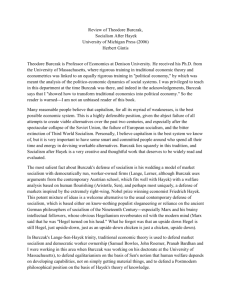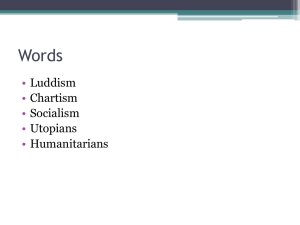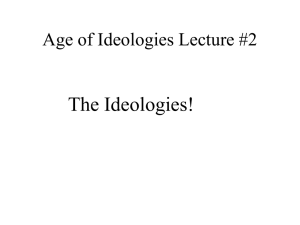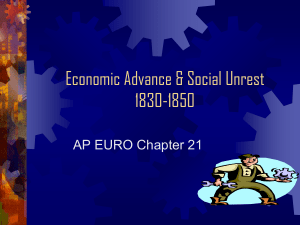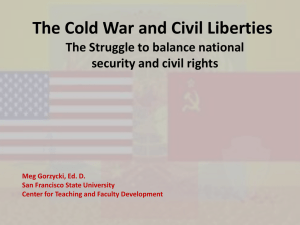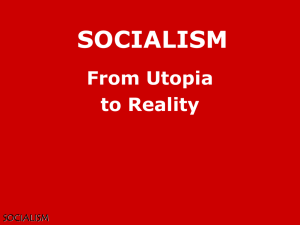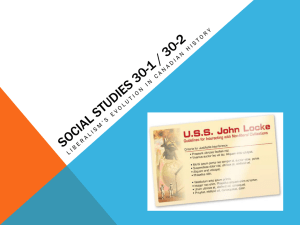Socialism as a Response to Classical Liberalism
advertisement
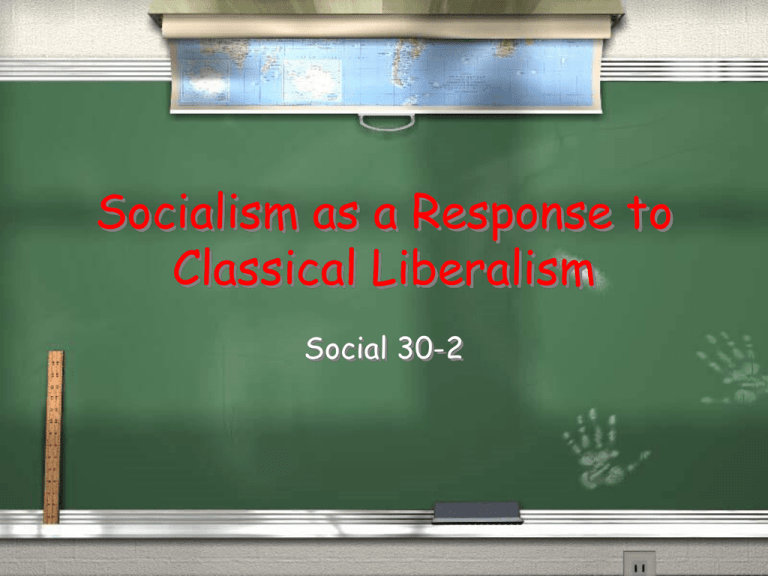
Socialism as a Response to Classical Liberalism Social 30-2 Developed Socialism in the early 19th century as a response to the declining social and economic conditions of the working class during the Industrial Revolution Felt these issues could be addressed by encouraging government involvement in the economy. Felt it would increase the distribution of wealth. Difference Between Socialism and Classical Liberalism Although Socialism embraced the concepts of human rights and democratic government, they also embraced collectivist aspects. Collective Responsibility Collective Interest Co-operation Economic Equality Adherence to Collective Norms And Public Property Socialism vs. Classical Liberalism Lets take a look at the charts on page 147 in your book, comparing Socialism and Classical Liberalism. Early Democratic Socialism Believed that Modern Liberalism did not provide the type of government intervention that would address the collective interests of society. Believed that political, economic, and social change could be achieved without revolution… as opposed to Marx. Believed that things could be changed through democratic processes. Such as elections, and reforms. Early Democratic Socialism Embraced Liberalist views such as democracy, freedom, and individual rights. However, Believed Capitalism infringed upon the rights of the workers to being truly free. Early Democratic Socialism Solution? Greater government involvement in the affairs of society. Social Programs I.e.- unemployment insurance, health care, education, and child care. Socialism Marxism and Communism Utopian Socialism Democratic Socialism Democratic Socialism in Canada Western Canada’s impact on the country’s social welfare programs. Many of the country’s social welfare programs that exist in Canada, originated in Western Canada. Programs that many of you will likely come in contact with. Such as: Student Loans EI Child-Care Initiatives CPP Minimum Wage Universal Health Care The Great Depression 1920’s A and 1930’s period of harsh economic conditions. People once again question the validity of Classical Liberalism. The Great Depression October Tuesday” 29, 1929 “Black Crash in stock market prices in New York City. Hit all around the world. Canada, Companies go bankrupt, Investors lose all their money, And unemployment reaches 27%. The Great Depression Slowly, Socialism and the idea of government intervention becomes more appealing. More and more of the population began to look towards the government to stop the bleeding. Co-operative Commonwealth Federation (CCF) Founded in 1932, in Calgary, AB. Prairies were hit particularly hard, because of the impacts of an illtimed drought. People were forced to abandon their homes, and search for work where they could find it. J.S Co-operative Commonwealth Federation (CCF) Woodworth, first party President Regina Manifesto Shelters for the jobless and homeless Job creation programs Pensions for those who had worked their whole lifetime but could not be cared for by their impoverished children. Health services that would be subsidized by the government so that people could get medical help for a fraction of the normal cost. Co-operative Commonwealth Federation (CCF) Tommy Douglas, elected Premier of Saskatchewan Created Canada’s form of Universal Healthcare CCF eventually became the NDP, which is still around today. http://www.youtu be.com/watch?v =gqpFm7zAK90 Socialism in Quebec Post World War 2 Maurice Duplessis, Premier of Quebec Strongly anti-communist, Strongly anti-union, Supported Quebec independence from Canada, However… Socialism in Quebec Government involvement in the economy Public works projects Highways Schools Hospitals Socialism in Quebec The struggle to separate from Canada was a driving force for these groups. The Canadian Government was seen as an oppressive force, in which revolution was needed to break free from. I.e.- Group Marxiste Revolutionnaire Parti Quebecois Rene Levesque, Quebec Separatist Leader Public Insurance Program Pharmacare (cheap medication) Child Care System Parental Leave Program Today, Bloc Quebecois Question? How come Socialist parties had such a huge influence in Western Canada in the early 20th century, but that’s not the case today?…


